Agenda at a Glance
Please note that this schedule and agenda are subject to change.
To view the full agenda and poster presentation topics, please scroll down.
Sunday, September 29, 2024
-
NAFC 101 - Intro Session on the NAFC & Symposium
-
Attendee Meet & Greet
Monday, September 30, 2024
-
Coffee with Sponsors & Exhibitors
-
Opening General Session
-
Breakout Sessions 1
-
Breakout Sessions 2
-
Lunch
-
Breakout Sessions 3
-
Day 1 Closing General Session
-
Poster Presentations/Viewing & Networking
-
Reception
Tuesday, October 1, 2024
-
Coffee with Sponsors & Exhibitors
-
Breakout Sessions 4
-
Breakout Sessions 5
-
Interactive Breakout Sessions 6
-
Lunch
-
Breakout Sessions 7
-
Closing General Session
Full Agenda
Please note that this schedule and agenda are subject to change.
To view the Poster Presentation topics, scroll down past the agenda.
Filters
Session Type
Speaker
NAFC 101 – Intro Session on the NAFC & Symposium
Join NAFC staff for a brief 101-style session that will provide an overview of the NAFC, our programs, member benefits, and the symposium. This is a great way to get acquainted (or re-acquainted) with our organization and event!
Attendee Meet & Greet
Coffee with Sponsors & Exhibitors
Opening General Session – A More Than Healthcare Conversation
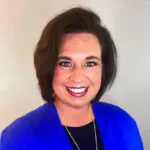
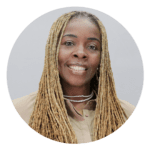

Join us for a conversation amongst members of the NAFC leadership as NAFC President and CEO Nicole Lamoureux sits down with NAFC Board of Directors Vice Chair Isi Green and Board of Directors Secretary Gigi Bretones as we delve into the 2024 conference theme “More than Healthcare.” This conversation will touch on nonprofit management, mental health, health equity, and more. Leave both inspired and equipped with new ideas and tools to bring back to your organization.
Building a Diverse and Inclusive Board: Strategies for Effective Recruitment and Retention
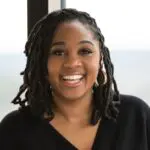
In this dynamic session, two leading experts in health equity and belonging will guide you through the critical process of recruiting and retaining a diverse Board of Directors. Explore practical strategies and best practices for cultivating a board that reflects the diversity of the communities you serve, ensuring a culture of equity and inclusion. Whether you’re looking to enhance your board’s current composition or starting from scratch, this session will equip you with the tools needed to foster belonging and drive meaningful change at the leadership level.
Pathway To Free Hip and Knee Joint Replacement Surgery for the Uninsured
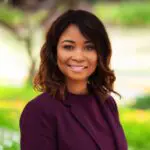
While more than one million hip and knee replacements are performed in the US every year, countless men and women continue to live with severe arthritic pain and immobility because they do not have insurance and cannot afford the surgery. This presentation will cover how to approach community partners to cover all the aspects of the pre-intra and post-surgery costs with a model that has already been used. This model also helps community partners showcase their philanthropic work and provide media coverage for marketing purposes. Through a process of partnership, with all contributing pro bono, there is a pathway to providing all aspects of treatment—surgery, hospitalization, and pre- and post-operative care — at no cost to qualifying uninsured patients.
Federal Policy Update and Election Preview
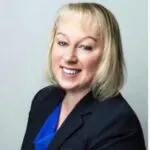
During this session, our federal lobbyist Alanna Suda, Senior Vice President, MikeWorldWide, will discuss what’s ahead in federal healthcare policy and outline the potential healthcare implications of the 2024 presidential and congressional elections under various scenarios. She will share insights on potential new members of Congress with healthcare backgrounds and review some of the challenges free and charitable clinics, charitable pharmacies, and our patients could face in 2025.
Building Bridges to Wellness: Expanding Mental Health Services in Free & Charitable Clinics
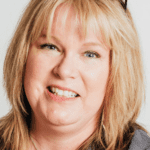
As mental health needs continue to rise, free and charitable clinics are stepping up to provide critical services to underserved populations. In this session, we will spotlight two visionary leaders who have successfully expanded mental health programs within their clinics. Through their stories, attendees will gain valuable insights into the strategies and innovations that made these programs possible, including overcoming significant challenges such as limited resources, staffing shortages, building trust among patients, and reducing stigma within the community. Join us to learn about their journeys, the lessons they’ve learned, and actionable steps you can take to enhance mental health services in your own clinic. This session will offer a blend of real-world examples and practical advice, followed by an interactive Q&A segment to address your specific questions and concerns.
Adding Some Spice to Diabetes Education

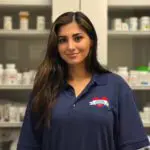
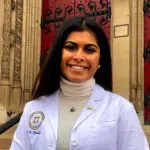
Diabetes is a widespread issue in the United States, affecting over 37.3 million people and ranking as the eighth leading cause of death in 2021. Minority and low-income groups face higher risks, with NAFC patients particularly affected due to their un/underinsured status and minority background. With health care increasingly focusing on value-based care, addressing SDOH is crucial for achieving equity. The D.E.E.P. program was created as an alternative to the CDC program for culturally unique populations, as it is flexible to the patients’ needs and preferences. 
In this presentation, we will explore the significance of providing culturally competent care in addressing the multifaceted challenges of diabetes management and prevention, aiming to enhance health outcomes and reduce disparities across diverse communities. Low health literacy significantly impacts diabetes outcomes, especially in minority populations. Challenges in managing diabetes arise due to lower health literacy, leading to limited glycemic control and increased risks of complications like retinopathy and cerebrovascular disease. Racial and ethnic minorities, facing barriers related to socioeconomic status and access to healthcare, are disproportionately affected by diabetes, with low health literacy being prevalent among vulnerable groups. The goal of programs like this one is to effectively tackle these determinants, thereby reducing disparities and promoting equal health outcomes for all individuals, particularly those in disadvantaged communities.
Federal Policy Update and Election Preview

*REPEATED SESSION* During this session, our federal lobbyist Alanna Suda, Senior Vice President, MikeWorldWide, will discuss what’s ahead in federal healthcare policy and outline the potential healthcare implications of the 2024 presidential and congressional elections under various scenarios. She will share insights on potential new members of Congress with healthcare backgrounds and review some of the challenges free and charitable clinics, charitable pharmacies, and our patients could face in 2025.
Burnout in Medical Office Staff: Recognition, Mitigation, and Prevention
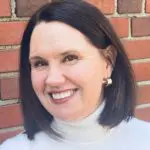
This session will address burnout in healthcare broadly before focusing on the ambulatory medical office, with particular emphasis on non-clinical staff. This often-overlooked group is as critical—and as vulnerable to burnout—as their clinical counterparts.
We’ll begin with recognition of burnout and its prevalence in today’s healthcare workforce. We’ll explore the related patient safety implications, including a de-identified event report. Next, we’ll discuss a data-driven, top-down approach to identifying causes of burnout, and we’ll share publicly-available assessments. We’ll examine a range of operational strategies and highlight several creative, employee-centered strategies to increase flexibility in working life. Finally, we’ll discuss the importance of psychological safety and protected time for any workplace intervention aimed at preventing or mitigating burnout. We’ll model that by inviting learners to trial a brief meditation within the scheduled session time, providing the option to step away if that is what they need most.
Point of Care Testing in a Free Clinic Setting
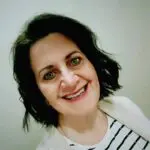
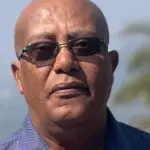
People across the U.S. delay medical treatment for a variety of reasons: cost, transportation barriers, inability to take time off work, language barriers, and more. Heart to Heart International works to broaden access to healthcare services and build capacity for health. Such quality healthcare depends on accurate and timely diagnoses, which often rely on the results of laboratory testing. Heart to Heart International works with health clinics in under-resourced communities to provide point-of-care testing capabilities. HHI laboratory experts help lay the foundation for a sustainable POC laboratory by training clinic staff, adhering to regulatory guidelines, and providing the necessary equipment, supplies, and mentoring for point-of-care testing. This testing capability allows clinics to run laboratory tests on-site and provide accurate diagnoses and treatments within a single patient visit.
Lunch
The Equity Rx Project: A Network of Free Clinics, Charitable Pharmacies, and their Mutual Patients
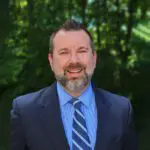
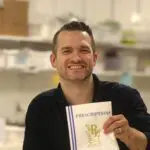
Free Clinics and Charitable Pharmacies are better together. While one in four adults report difficulty affording their medications, collaboration holds the key to create systems change that partner free clinics with charitable pharmacies to improve medication access. In this session, learn about the Equity Rx Project in Ohio and how it is overcoming medication access barriers by developing a network of free clinics and charitable pharmacies that serve “mutual patients” throughout the state.
This session will review the strategies behind engaging a grant funder in a “big picture” multi-year project. Charitable Healthcare Network received grant support from Cardinal Health Foundation to initiate the Equity Rx Project to create both a short-term and a long-term solution for Ohio’s medication access crisis.
This session will explain a case study in which one charitable pharmacy has connected with three free clinics to function as a network committed to care of their mutual patients. Practical tips for overcoming barriers will be discussed with tangible deliverables that can be adapted to replicate these successes in other areas. Also, this session will challenge attendees to work collaboratively, in many instances with their state association, to leverage clinical strengths to better care for patients.
Health Zones: Partnering with Corporations to Create Healthy Communities
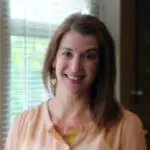
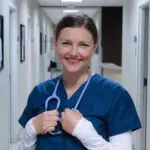
In a time when nonprofits are desperately trying to diversify their revenue streams and corporations are navigating both their bottom line and social responsibility, mutually beneficial collaboration opportunities are key for the success of both. Join The Good Samaritan Health Center for an in-depth look at how a mid-size health center and a $300B corporation came together amidst a global pandemic and ended up building a partnership framework to address poor health outcomes across a community. You’ll learn important skills in corporate relationship building, managing expectations, navigating complex corporate structures, and how to build a program that truly serves the most important stakeholder: your patients.
Integration of Street-Based Behavioral Health Care and Programs that Address Social Determinants of Health

In many settings, patients are not seeking care in traditional, office-based settings. This session will focus on the why and how of providing care outside the clinic walls, starting with meeting patients where they are. We will discuss manner of service delivery, appropriateness of different locations, level of clinical services that can be offered, and address issues including safety, situational awareness, language, and appearance. Discussion of integrated services will include the importance to overall health and wellbeing of linking medical/behavioral health care to services that address shelter/housing, food insecurity, financial wellbeing. Tenets that will be described include housing first, trauma-informed care, patient-centered service delivery, and harm reduction (not strictly related to substance use). We will explain different methods of introducing new street/campsite/shelter medicine programs to communities, and ways of building trust with reticent patient populations, sometimes starting with addressing social determinants of health as an introduction to medical/behavioral health care.
Artificial Intelligence in Healthcare: A STEEEP Approach to Benefits, Risks, and Quality Care
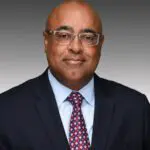
Step into the future of healthcare with a high-level introduction to artificial intelligence (AI) and its growing role in improving healthcare quality. This session will explore the benefits and risks of AI within the framework of the STEEEP methodology—focusing on Safety, Timeliness, Effectiveness, Efficiency, Equity, and Patient-Centeredness. Learn how AI is poised to transform healthcare delivery, from enhancing clinical decision-making to streamlining operations, while also considering the ethical and practical challenges it presents. This session offers a balanced overview, preparing you to navigate the complexities of AI in healthcare and harness its potential to deliver high-quality care.
Day 1 Closing General Session – NAFC Stories Worth Sharing
At the 2023 Symposium, we launched NAFC’s version of a TED talk. We are bringing this inspiring session back this year with new stories. It will be comprised of 3-4 leaders who will present 10-minute motivational stories about their lives, leadership, and the intersection of passion and purpose.
Poster Presentations/Viewing & Networking
Reception
Coffee with Sponsors & Exhibitors
Raising Transformational Funds for Free & Charitable Clinics with a Small Staff
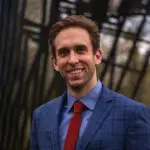
In this session, participants will learn the 5 key strategies to fundraising substantial dollars to make a real and transformational impact in their organization’s mission. Fundraising can be complex and overwhelming with a small team, so we will break down how best to spend limited staff time to actually move the needle and drive revenue to the bottom line. Each of the 5 strategies will come with specific and actionable examples that participants can implement immediately after the session to increase funding for their organizations. Our session will provide an in-depth exploration of five crucial strategies designed to maximize fundraising efforts with limited resources. The presentation will guide participants through each of these pillars, offering practical, actionable advice they can implement immediately to transform their fundraising capabilities.
The session includes specific examples and case studies from across the sector, showcasing how similar organizations have successfully implemented these strategies. A Q&A segment will be included to address specific challenges attendees may face. This approach will equip attendees with the knowledge and tools necessary to advance their organization’s fundraising efforts significantly.
We Opened a Free Clinic in a Rural Red State. Come Find Out How.
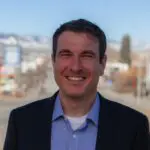
Politics are polarized and social media is a hellscape. But communities can still come together around exceptional ideas like free clinics, and get a great deal accomplished in the process. In this session we will demonstrate how, through coordination with NAFC and VIM, we were able to overcome initial skepticism and open a new free clinic in Lander, WY. We will provide detailed information on performing a community assessment, gathering stakeholders, and meeting the regulatory, legal, and medical requirements to open a clinic. We will also discuss how our clinic has been received in the community and the excellent results we have achieved.
Breaking Barriers: Dental Care for Patients with Special Healthcare Needs in Free Clinics Setting
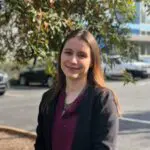
How do you move from Chief Crisis Firefighter to Chief Storyteller?
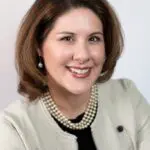
There is always a problem to solve for the patients, volunteers, technology, facility, partner, etc. Being the Chief Crisis Firefighter is sometimes satisfying, most times exhausting, and yet we spend the majority of every day in this role. Why? Because we hear the stories of our impact and these stories affirm our purposeful life. In this session, the aim is to inspire participants to see our collective role to share these stories. provide examples for participants to identify the people and the platforms to share your stories with larger audiences.
Volunteerism, from Developmental Perspectives
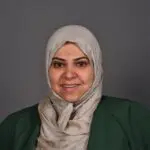
Volunteers are crucial resources in organizations. While their support in activities, events, and tasks enhance the provided services, organizations can maximize the short-term and long-term impacts of volunteers’ participation through developmental strategies. The goal of this presentation is to provide developmental strategies to improve volunteer retention, volunteer management, and volunteer tracking system. The presentation will highlight each stage/step of volunteer coordination and the main skill sets that are needed to achieve the best of that stage. Resources and examples of tools will be provided to improve each stage of volunteer coordination. The presentation will emphasize tracking and analyzing the volunteers’ data and how organizations can use the data for future organizational development and marketing strategies.
Fundraising Tips for Free and Charitable Clinics
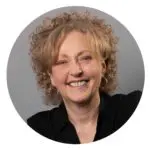
Funding is critical for free and charitable clinics to continue their mission and care for our communities. In this session, we’ll discuss trends in funder requirements, the must-haves for your funding requests, and tips on maximizing your asks. Attendees will leave with actionable items and a handy checklist to implement back at their organizations.
Beyond the Surface: Culturally Competent Dermatology for Diverse Populations
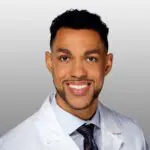
This essential session, led by Dr. Wallace Nozile, delves into the unique dermatological needs of patients of color, offering healthcare professionals a comprehensive understanding of the physiological differences and common skin conditions affecting diverse skin tones. Dr. Nozile will guide participants through the distinct challenges faced by patients of color and present culturally competent treatment strategies tailored to their needs. Through this breakout session, attendees will gain valuable insights into identifying and managing dermatological conditions prevalent among patients of color. The session also focuses on enhancing clinical skills to ensure that healthcare providers can deliver effective, culturally sensitive care to this diverse patient population.
Strategies for Enhancing Vaccination Efforts in Free and Charitable Clinics


In underserved communities, flu vaccination uptake remains a critical challenge. This session will explore how strategic collaboration can increase vaccination rates by providing up-to-date educational resources for patients and healthcare teams, improving access to vaccines, and using tools to measure progress.
We will highlight the SHC DRIVE Flu program—a quality improvement initiative designed to support primary care teams in delivering high-quality, equitable care. Through a rapid cycle improvement model, the program emphasizes a champion-led, patient-centered, team-based approach to address knowledge gaps and enhance vaccine access. Over the past two years, this approach has successfully increased flu vaccination rates in Free and Charitable Clinics. This session will provide practical insights and actionable strategies for enhancing vaccination efforts in your community.
Interactive Session – Elevating Care: Opening an Onsite Pharmacy for Better Medication Access
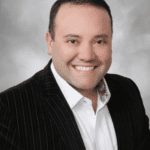
Medication access and affordability remain significant hurdles for uninsured patients striving for better health outcomes. While many clinics partner with PAP programs and local pharmacies to offer low-cost or free medications, there may come a time when your organization considers taking the next step: opening an onsite pharmacy or dispensary. Join experts from the NAFC Charitable Pharmacies of America Program in this interactive session that will discuss essential steps required to establish a pharmacy at your location. This informative and interactive session will equip you with actionable insights and practical strategies to assess the feasibility of launching an onsite medication access program. Whether you’re exploring this option or ready to implement, our experts and this conversation will help you navigate the process and enhance your organization’s capacity to serve your patients effectively.
Navigating the Roadmap to Health Equity: An Interactive Discussion
Join us for an engaging session focused on the Roadmap to Health Equity initiative, where attendees will have the opportunity to dive into meaningful conversations, ask questions, and connect with fellow participants. This interactive session will explore key components of the initiative, share insights on implementation, and provide a space for open dialogue to help you better understand and apply the Roadmap to your own work. Come ready to collaborate, share ideas, and learn from others!
Interactive Session – What Keeps You Up at Night? Clinic Operations and Nonprofit Management
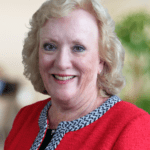
In this interactive session, attendees will have the opportunity to discuss the most pressing operational and management challenges they face in running clinics and nonprofits. Whether it’s staffing, budgeting, navigating compliance issues, or improving organizational efficiency, this moderated discussion will provide a space for candid conversation and shared learning. Participants will engage with peers, exchange best practices, and explore solutions to help overcome the obstacles that keep them up at night. Come prepared to share your experiences and walk away with actionable insights and new strategies for success.
Interactive Session – What Keeps You Up at Night? Patient Care

This fully interactive session invites attendees to share and discuss the patient care challenges that weigh most heavily on their minds. Whether it’s managing complex cases, addressing mental health needs, navigating limited resources, or ensuring equitable care, this session provides a supportive environment for open dialogue. Moderated by an experienced facilitator, participants will engage in candid conversations, exchange strategies, and explore solutions to the pressing concerns that impact patient care. Join your peers to share insights, ask questions, and leave with new perspectives on the challenges you face every day.
Lunch
Visioning and Strategic Planning: using the 3 Horizon Model to Lead your Clinic
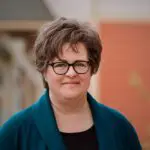
“Change is scary. Many of us spend a lot of time managing for today because it is what we know how to do. But what if we could have a vision for the future and an easy way to connect it to the present, embracing change as natural and exciting instead of scary?
The Three-Horizon Model can be used in various settings and situations and is a useful tool for Boards, staff, and communities to collaborate on organizational evolution and sustainability. The 3 Horizon Model can be adapted for internal organizational challenges and is also useful for community and stakeholder conversations. It is a visual guide for funders to illustrate how a clinic anticipates and addresses change. Best of all, it creates context and perspective for organizational focus growth and integration. It is easy to use, learn, and teach to others.
Heat-Health Action Plan: Leveraging Community Interventions to Safeguard Patient Health
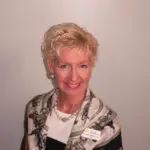
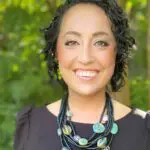
As the world grapples with escalating temperatures and the health challenges associated with extreme heat events, free and charitable clinics can stand at the forefront of community readiness. They can act as advocates and bridges connecting patients with essential health-safety information, resources, and services. In this session, our climate experts and clinic representatives will provide an overview of the impacts of extreme heat on patients and clinic operations and give tangible examples of how to address challenges inside and outside of clinic walls.
It will describe a comprehensive Heat-Health Action Plan (HHAP), developed by Americares in collaboration with Harvard University T.H. Chan School of Public Health, Center for Climate, Health and the Global Environment (Harvard C-CHANGE) and a cohort of safety net clinics. The panel discussion will highlight potential interventions and an illustrative case study presented by Suzanne Roberts, CEO of Virginia B Andes Volunteer Clinic in Port Charlotte, Florida.
Organizational Financial Management & Compliance Refresher

In the fast-paced world of nonprofit management, keeping up with financial budgets, strategy, and compliance can take time and effort. Join us for an engaging discussion that revisits the fundamentals of effective financial management. We will cover critical topics, including budgeting monitoring, the timely preparation and submission of Form 990, audit reports, and best practices for communicating financial information to your Board of Directors and the communities you serve.
We will guide you through practical strategies and actionable insights to reinvigorate your financial practices. Attendees will leave the session feeling energized and equipped with valuable checklists and tools they can implement immediately upon returning to their organizations.
Take advantage of this opportunity to revitalize your approach to financial strategy and compliance, ensuring your organization thrives in its mission!
Cancer Screening and Prevention—a Paradigm Shift in Women’s Health Promotion
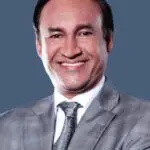

We developed a practical model of care for cancer screening and prevention for uninsured and underprivileged women in Georgia with the grants of NAFC. The model demonstrates how to educate and sensitize local communities and attract, recruit, and assist them with screening services for breast cancer, cervical cancer, and other women’s healthcare needs. The presentation will focus on essential areas of program strategies and development, resource mobilization and partnerships, and program delivery and management. This session is dedicated to the health and well-being of women, a testament to our commitment to their care and empowerment.
In particular, the presenters will present the following:
- Developing a strategic framework to create learning opportunities for communities
- Engaging, training, and empowering volunteers to create a women-friendly environment in the clinic
- Ensuring quality of care while allowing flexibility in the program
- Partnerships development and resource mobilization
- Lessons learned, program sustainability, and challenges
The project has been making a significant impact on the community and partners. However, future challenges lie in its sustainability after the grant period. The presenters will also discuss the sustainability strategies and challenges.
Closing General Session – NAFC Member Update

